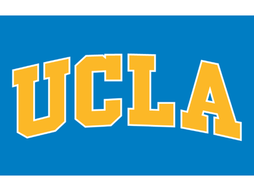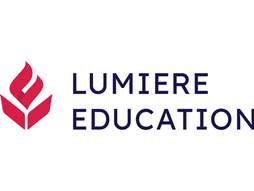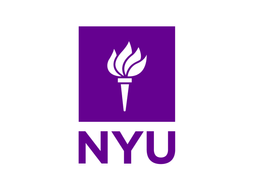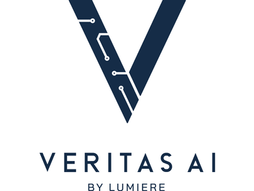12 STEM Pre-College Summer Programs for 2023/2024
STEM pre-college programs allow students to understand and explore their discipline of choice in a fast-altering career landscape. Not only do these programs prepare you for the rigor of academic life in college, but they also ensure that you identify and develop necessary analytical and critical thinking skills in your field early on.
For many students, STEM pre-college programs are where you first engage with high-level research and fieldwork, which gives you better clarity on what you want your college experience to be like. You have more hands-on knowledge to inform your student application essays, which often require you to elaborate on how you’ve taken actionable steps toward exploring your academic interests. These programs also expose you to a valuable network of alumni and faculty in STEM that can further help you along your college admissions process.
To make your journey a little easier, we’ve compiled a list of 10 STEM pre-college summer programs for 2023/2024.
Read on to know more!
The Lumiere Research Scholar Program is a rigorous research program tailored for high school students. The program offers extensive 1-on-1 research opportunities for high school students, across a broad range of subject areas that you can explore as a high schooler.
The program pairs high-school students with Ph.D. mentors to work 1-on-1 on an independent research project. At the end of the 12-week program, you’ll have developed an independent research paper! You can choose research topics from subjects such as psychology, physics, economics, data science, computer science, engineering, chemistry, international relations, and more. You can find more details about the application here.
Application Deadline: Varying deadlines based on cohort. Main summer deadlines are March 15, April 15, and May 15
Duration: Options range from 12 weeks to 1 year.
Location: Remote — you can participate in this program from anywhere in the world!
Eligibility:
You must be currently enrolled in high school
Students must demonstrate a high level of academic achievement. (Note. students have an unweighted GPA of 3.3 out of 4)
No previous knowledge of your field of interest is required!
Program Dates: The summer cohort runs from June to August, the Fall cohort from September to December, the Winter cohort from December to February, Spring from March to June
Widely considered the most prestigious summer program in STEM for high school students, this list would be incomplete without mentioning MIT’s Research Science Institute. An intensive, six-week summer residential pre-college program geared towards honing potential leaders in STEM, the Research Science Institute is co-sponsored by the Center for Excellence in Education (CEE). RSI is fully funded, and thus, highly selective, with students securing admission at top Ivies going forward.
As part of the program, you will experience the complete research cycle and learn to execute your research plan, presenting final findings via oral presentations and written reports. To better understand the academic output facilitated by RSI alumni, you can read through some of their written papers here.
Cost: An application fee of $65 for U.S. students and $30 for international students.
Location: MIT Campus, Cambridge MA
Eligibility: High school juniors with recommended PSAT math scores of at least 740 for evidence-based reading and 700 for writing. An ACT math score of at least 33 and verbal scores of at least 34 are recommended. Lower scores will be considered if relatively balanced by strong mathematical, scientific, and academic potential highlighted via recommendation letters, high school grades, and science extracurriculars. High school seniors are not eligible to apply. Younger students may seek to obtain an explicit exception granted from the CEE.
Program dates: June 23 to August 3.
Application deadline: December 13, 11:59 pm E.T.
3. Veritas AI
Veritas AI, founded and run by Harvard graduate students, offers programs tailored for high school students who are passionate about artificial intelligence. Students who are looking to get started with AI, ML, and data science would benefit from the AI Scholars program. Through this 10-session boot camp, students are introduced to the fundamentals of AI & data science and get a chance to work on real-world projects.
Another option for more advanced students is the AI Fellowship with Publication & Showcase. Through this program, students get a chance to work 1:1 with mentors from top universities on a unique, individual project. A bonus of this program is that students have access to the in-house publication team to help them secure publications in high school research journals. The fellowship encourages students to explore interdisciplinary approaches, enabling them to merge AI with various fields such as finance, medicine, sports, environmental science, and more! You can also check out some examples of past projects here.
Location: Virtual
Cost:
$2,290 for the 10-week AI Scholars program
$5,400 for the 15-week AI Fellowship with Publication & Showcase
$6,900 for both
Need-based financial aid is available for AI Scholars. You can apply here.
Application deadline: On a rolling basis. Winter cohort deadline - December 1
Program dates: Various according to the cohort
Program selectivity: Moderately selective
Eligibility: Ambitious high school students located anywhere in the world. AI Fellowship applicants should either have completed the AI Scholars program or exhibit experience with AI concepts or Python.
The Stanford Institutes of Medicine Summer Research Program is an eight-week program for high school juniors or seniors from diverse backgrounds that aims to increase their interest in biological sciences and medicine while helping them realize their full potential in the field. On selection, you will be assigned a field of study based on your preference, and spend the subsequent two months being mentored by Stanford faculty, postdoctoral fellows, students, and researchers. Each branch has a unique internship structure to provide you with an immersive learning experience. An added perk is the $500 stipend that students receive upon successful completion of the program!
Cost: No cost, stipend provided. The $40 application fee can be waived
Location: Stanford University campus
Eligibility: High school students who are at least 16 years of age by the start of the program and in the graduating classes of this or next year may apply. The program is only open to U.S. citizens or permanent residents.
Program dates: June 10 to August 1
Application deadline: February 24. Online application forms will be available on their official website from December 20, 5pm PST.
5. MathCamp
If you have zeroed in on your interest in exploring the complex field of mathematics further, then MathCamp is your go-to summer camp. Funded by the Mathematics Foundation of America, this annual four-week program introduces you to various undergraduate and graduate-level topics in maths through lectures, workshops, and collaborative projects with your batchmates. MathCamp is one the most prestigious summer programs with an acceptance rate of less than 5 percent, so make sure that your passion really shines through in your personal essay!
Cost: $5000. General financial aid is provided based on the needs of the applicant.
Location: Champlain College in Burlington, Vermont.
Eligibility: Students between 13 to 18 years of age may apply.
Program dates: July to August (based on last year’s schedule)
Application deadline: March (based on last year’s schedule)
MIT’s pre-college summer program offers unparalleled exposure to top mentors in STEM with the help of whom students are encouraged to develop their critical thinking, academic, research, and personal skills. You will learn how to utilize your STEM knowledge towards the eradication of challenges in the real world, as well as receive a comprehensive skill report highlighting your strengths and areas of improvement, which will help you to upskill and draft a better college application. Keep in mind that over 30 percent of MITES Summer students go on to study at MIT!
Cost: Free of charge
Location: MIT Campus, Cambridge MA
Eligibility: High school juniors with U.S. citizenship or a Permanent Residency status.
Program dates: late June through early August (exact dates are yet to be announced)
Application deadline: February 1.
The Summer Science Program is ideal for those who want to immerse themselves in hands-on experimental science. An independent nonprofit that is governed, operated, and largely funded by its own alumni and former faculty, SSP offers students genuine and authentic growth in a collaborative space. Each year, 36 participants are divided into teams of three and undertake a real research project involving the analysis of original data. In 2023, the SSP operated six programs, of which three were in astrophysics, two in biochemistry, and one in Genomics. Be sure to check their official website to stay updated on the programs on offer in 2024!
Cost: $8400 (based on last year’s figure). Need-based financial aid covering up to 100 percent of all expenditures is provided and need-blind admittance is guaranteed.
Location: Depending on your course of choice, either New Mexico State University, University of Colorado Boulder, University of North Carolina Chapel Hill, Purdue University, or Indiana University.
Eligibility: Open to high school juniors, as well as a few exceptional sophomores, who are between the ages of 15 and 19 during the program.
Program dates: Mid-June to the end of July (based on last year’s schedule)
Application deadline: February for international applicants and March for domestic students (based on last year’s schedule)
If you want to get all the perks of pre-college programs from the comfort of your home, you don’t need to look further than Georgetown University’s online course on Medical Research: Clinical Trials Resulting in Medical Discoveries. Over its two or four-week duration depending on your preference, you will enjoy the flexible schedule and pace of twenty to thirty hours of instruction and coursework with guidance and support from capable mentors. The course culminates with a special Capstone Project, which involves a video presentation studying the components of the scientific method for clinical trials with the use of research papers of your choosing.
Cost: Up to $1795. Scholarships available.
Location: This is an online program.
Eligibility: Open to all high school students.
Program dates:
2-week program - December 17 to December 31.
4-week program - January 7 to February 4.
2-week program - January 21 to February 4.
Application deadline: December 10, for the programming commencing in December, December 31 for the January 7 program, and January 14, for the 2-week January program.
Carnegie Mellon University’s Summer Academy for Math and Science allows high school juniors to engage in hands-on projects and lectures from their renowned faculty to broaden their understanding of STEM and make opportunities in the field more accessible to them. The first part of the program is a virtual briefing that equips students with the necessary skills to engage in the rigorous five-week in-person pre-college program which entails the second part. The program culminates in a final symposium of the cohort’s project presentations along with a closing awards ceremony. As a SAMS scholar, you will also get to interact with your peers, university students, and community members to explore STEM majors at CMU in line with your future interests as well!
Cost: Free
Location: Carnegie Mellon University Campus, Pittsburg, PA
Eligibility: Applicants must be high school juniors of at least sixteen years of age by the start of the program. The program is only open to U.S. citizens or permanent residents.
Program dates: June 22 to August 3
Application deadline: March 1
The Young Researcher’s Program is a six-week summer program for high school seniors who want to experience hands-on university-level research projects while attending weekly workshops that provide fundamental knowledge about college applications and pursuing careers in STEM fields. The program pairs you with a graduate mentor to complete a research project, leading up to a public symposium open to friends and family. An additional attraction is the three-day nature appreciation trip to Catalina Island spent learning about environmental science, hiking, and snorkeling!
Cost: $300 stipend at the end of the program
Location: University of Southern California Campus, Los Angeles, with two field trips to NASA Jet Propulsion Laboratory and Catalina Island
Eligibility: For high school juniors or rising seniors attending a public school in Los Angeles, Lynwood, Compton, or Inglewood Unified school districts (including charter schools).
Program dates: June 15 - July 28 (based on previous year’s schedule)
Application deadline: March (based on previous year’s schedule)
The Johns Hopkins Internship in Brain Sciences Program is a fully funded eight-week long research program for high school students interested in neurological sciences. Its focus on cultivating a diverse and inclusive environment means that the program is free of cost, even providing an hourly stipend to enrolled students. As one of the five to six students who are selected, you will have access to the guidance and mentorship of leading neuroscientists at the university and take part in scientific seminars, hands-on projects, and weekly educational as well as professional development sessions. An oral or poster presentation highlighting your research progress is expected at the end of the internship. You can also opt for the five-week-long virtual version of the program!
Cost: No cost, hourly stipend provided, and transportation costs covered. Virtual interns receive a $500 scholarship upon completion of the program.
Location: Online or at the Johns Hopkins University Campus in Baltimore.
Eligibility: U.S. high school juniors and seniors from underrepresented populations for the virtual program. Additionally, applicants must be enrolled in schools in Baltimore City to be eligible for the in-person program.
Program dates: June to August.
Application deadline: March 1.
A six-week-long paid internship for students with a passion for geosciences, the Geosciences Bridge Program offered by the University of Maryland provides hands-on exposure to the tactical field of geoscience. Students will take part in daily lectures or field trips covering multiple topics such as atmospheric science, biogeochemistry, environmental science, marine biology, and civil and environmental engineering among others. Funded by the National Science Foundation (NSF) and the NOAA Living Marine Resources Cooperative Science Center (LMRCSC), the program is committed to developing your skills and enriching your resume before your freshman college year begins!
Cost: Fully funded, with a stipend of $500 per week and travel reimbursement to and from the university.
Location: University of Maryland Eastern Shore
Eligibility: Graduating high school seniors who are U.S. citizens or permanent residents with a minimum GPA of 2.7 planning to pursue a bachelor’s degree in a geoscience discipline.
Program dates: Late June to early August (based on previous year’s schedule)
Application deadline: mid-April (based on previous year’s schedule)
Stephen is one of the founders of Lumiere and a Harvard College graduate. He founded Lumiere as a PhD student at Harvard Business School. Lumiere is a selective research program where students work 1-1 with a research mentor to develop an independent research paper.
Image SourcE: MIT logo









